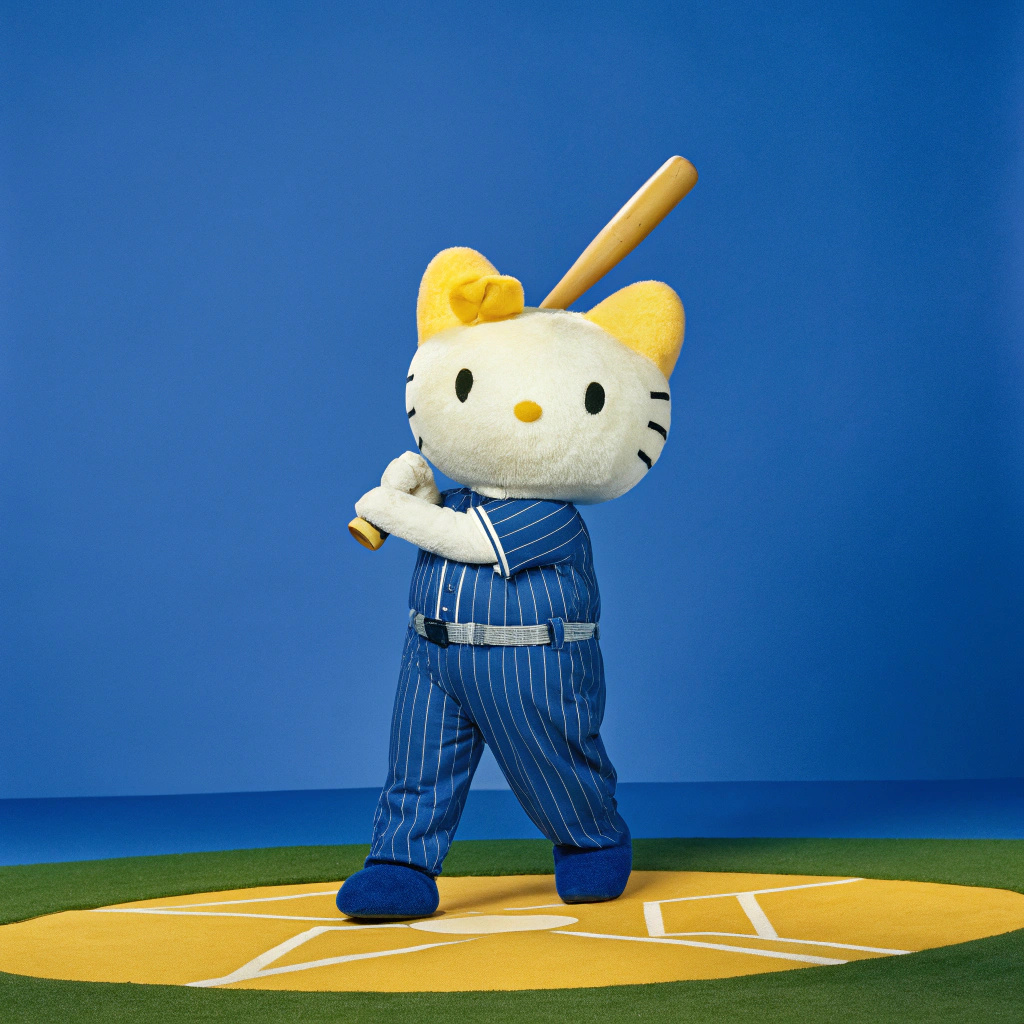What Are Fantasy Sports?
Fantasy sports are online games that allow players to create their own teams composed of real-life athletes
from various
sports, such as football, basketball, baseball, and more. The performance of the athletes in actual games
determines the
points scored by the fantasy teams, based on their real-world statistics like goals, assists, and other
relevant
metrics.
In fantasy sports, participants act as team managers, selecting players through drafts or auctions and
making decisions
like trades, player pickups, and starting lineups. These decisions directly impact the success of their
fantasy team.
Fantasy leagues can be played for a single season or even span multiple seasons, with participants competing
for points
and rewards based on the athletes’ performances.
The rise of fantasy sports has been fueled by its interactive and strategic nature, making it a popular
pastime for
sports fans. Players get a deeper connection with their favorite athletes and teams, as well as the thrill
of making
strategic decisions that could lead to victories. Fantasy sports have expanded into various formats, with
daily and
weekly games becoming increasingly popular, allowing fans to engage more frequently with their favorite
sports.



Fundamentals of Fantasy Sports
Fantasy sports are built on a few key concepts that help players understand how to participate and succeed. Here are the fundamental elements that form the foundation of fantasy sports:
-
1.Drafting Your Team
The first step in fantasy sports is selecting your team. This is done through a draft, where you choose real-life athletes from a pool of available players.
-
2.Scoring System
Fantasy teams score points based on the real-life performances of the athletes you’ve selected. The scoring system varies by sport and league.
-

-

-
3.Team Management
Success requires managing your lineup, making trades, and using the waiver wire to adjust for injuries or underperformance. Setting the best lineup weekly is key to scoring high.
-
4.Leagues and Formats
Compete in seasonal or daily leagues with formats like head-to-head matchups or total points. Some leagues include playoffs or prizes, adding excitement and competition to the experience.
How Fantasy Sports Work
Fantasy sports are interactive games where participants create their own teams using real-life athletes and compete based on the performance of these athletes in actual games. Here’s a breakdown of how it works:

1. Creating a Team
Fantasy sports start with creating a team. Each player drafts athletes from a pool of available options. This can be done through a snake draft (where the order of picks reverses after each round) or an auction draft (where participants bid on players). The goal is to assemble a team that will perform well throughout the season or competition.
2. Scoring Points
Once your team is formed, the players on your roster earn points based on their real-life performance in games. The points can be awarded for various actions like scoring goals, assists, or making defensive plays, depending on the sport. For example:
- In football, you might score points for touchdowns, yardage, or field goals.
- In basketball, points are awarded for points scored, rebounds, assists, steals, and blocks.
- In baseball, points are based on batting and pitching stats such as home runs, runs, and strikeouts.
3. Managing Your Team
After the draft, it’s up to the manager to make decisions throughout the season. This includes:
- Starting Lineup: You need to choose which players will play each week. Only the athletes in your active lineup will contribute to your score.
- Waiver Wire: If a player gets injured or underperforms, you can add a new player from the free-agent pool or another team's discarded players.
- Trades: You can trade players with other participants to improve your roster. Trading is a strategic part of managing your team’s strength.
4. Competing in Leagues
Fantasy sports are played within leagues. Each league has a set of rules and a schedule, often based on the real-life sports season. There are different ways to compete:
- Head-to-Head: You compete against one other participant each week, and the winner is determined by which team scores the most points.
- Points-Based: Teams accumulate points throughout the season, with the team with the most points at the end of the league’s duration being the winner.
- Playoffs: Some leagues feature a playoff system where the top teams from the regular season compete in a knockout format for a championship.
5. Prizes and Rewards
Many fantasy sports leagues offer rewards or cash prizes for winning. The prize pool is often determined by league entry fees or sponsorships. Winners can earn money, trophies, or simply the satisfaction of outsmarting their opponents with superior strategy.
Popular Fantasy Sports
Fantasy sports span across a variety of real-world sports, each offering a unique way for fans to engage with the action. Here are some of the most popular fantasy sports:
-
Fantasy Football
Fantasy football is one of the most popular and widely played fantasy sports. Players draft a team of real-life NFL players, and points are awarded based on their performance in real games, such as touchdowns, yardage, field goals, and defensive stats. Fantasy football leagues typically run during the NFL season, with teams facing off in head-to-head matchups each week.
-
Fantasy Basketball
In fantasy basketball, participants draft NBA players and earn points based on stats like points scored, assists, rebounds, steals, blocks, and turnovers. Given the fast-paced nature of basketball, fantasy basketball often requires more active management, with daily decisions about lineups and player picks. It's particularly popular during the NBA season.
-
Fantasy Baseball
Fantasy baseball allows participants to draft MLB players and score points for actions like home runs, RBIs, runs, strikeouts, and ERA (Earned Run Average). Unlike fantasy football and basketball, fantasy baseball typically requires more frequent management due to the long MLB season and daily games. Leagues can be played for the entire season or involve daily or weekly changes.
-
Fantasy Soccer
Fantasy soccer leagues are based on real-life performances in major soccer leagues like the English Premier League (EPL), La Liga, or the UEFA Champions League. Players earn points for goals, assists, clean sheets, and other performance metrics. Soccer fantasy sports have grown in popularity globally, especially with major leagues offering official fantasy platforms.
-
Fantasy Hockey
Fantasy hockey is similar to fantasy football or basketball but focuses on the NHL. Players score points based on goals, assists, shots on goal, plus/minus, and goalie stats like wins and shutouts. Like fantasy baseball, hockey leagues can require more attention due to the number of games and the importance of frequent lineup adjustments.
-
Fantasy Golf
Fantasy golf differs from other fantasy sports because it often involves drafting players for a series of tournaments or an entire season. Points are awarded based on how well players perform in actual golf tournaments, with metrics like finishing position, birdies, and eagles. Golf’s seasonal nature makes this fantasy game less intense than others but equally strategic.
-
Fantasy NASCAR
Fantasy NASCAR involves creating teams of real-life drivers and earning points based on their performance in races. Points are awarded for finishes, laps led, and other race metrics. Fantasy NASCAR leagues are popular among motorsport fans, especially during the NASCAR season.
-
Fantasy MMA
Fantasy MMA allows fans to select fighters from various UFC events, earning points based on performance metrics such as knockout wins, submission victories, and total fight time. Fantasy MMA adds a layer of excitement, as participants draft fighters and follow their performances in different fight events.
Winning Strategies for Fantasy Sports
To succeed in fantasy sports, you need more than just luck. A strategic approach, good research, and smart decision-making are essential for maximizing your chances of winning. Here are some key strategies to help you become a fantasy sports champion:
Do Your Research
Knowledge is power in fantasy sports. The more you know about the players, teams, and trends, the better equipped you'll be to make informed decisions. Key areas to focus on:
- Player Performance: Analyze past performance, consistency, and injury history. Understand how players perform in different matchups, weather conditions, and on specific teams.
- Matchups: Study how opposing teams perform against specific positions. For example, a quarterback playing against a weak defense will likely score higher.
- Injury Reports: Stay updated on player injuries and suspensions. Injuries can significantly impact a player’s performance, so it's crucial to monitor news regularly.
Draft with Balance
A successful fantasy team requires a balanced roster. Instead of loading up on stars from one position, aim to build a well-rounded team. Some key draft tips:
- Position Scarcity: Be mindful of positional scarcity. In some sports, there may be fewer top-performing players at specific positions (e.g., a top-tier quarterback in fantasy football). Make sure you don’t neglect these positions.
- Best Available Player: When drafting, consider taking the best player available rather than strictly following a need-based approach. This way, you can always trade later if necessary.
- Sleeper Picks: Look for underrated players who may perform better than expected. These “sleepers” can give you a competitive advantage without using early-round picks.
Stay Flexible and Adapt
The fantasy sports landscape can change quickly. Injuries, trades, and shifting team dynamics can affect player performance. To stay competitive:
- Monitor Trends: Watch for trends in player performance and team strategies. For example, if a team is focusing more on passing plays, it could increase the fantasy value of their quarterback and wide receivers.
- Be Ready to Pivot: If a strategy isn’t working, don’t hesitate to pivot. For example, if your star players are underperforming, consider changing your approach or making riskier moves to stay competitive.
Know the Scoring System
Different fantasy leagues and sports have different scoring systems, so it’s essential to understand how your league awards points. Some key considerations include:
- Scoring Categories: Be sure you understand how points are awarded. For example, in fantasy football, you might get more points for a touchdown than for yardage, while in fantasy basketball, assists and rebounds may be just as valuable as scoring.
- Value of Bench Players: In some formats, bench players might score important points when starting players are injured or on a bye week. Make sure to factor this into your strategy.
Play for the Long Term
While it’s important to focus on weekly matchups, the ultimate goal in seasonal fantasy sports is to win over the long haul. This requires a mix of short-term and long-term strategies:
- Roster Depth: Build depth in your roster, especially for positions with higher injury risks. Having backups for key positions will ensure your team remains competitive even when injuries occur.
- Trade for Future Value: If you're not competing for a championship, don’t hesitate to trade for younger, higher-upside players who could perform well in the future.
Leverage Expert Opinions and Tools
Fantasy sports experts and analytics tools can provide valuable insights into player performance and strategies. Consider using:
- Fantasy Sports Websites: Sites like ESPN, Yahoo Fantasy, and FanDuel offer player rankings, analysis, and projections.
- Expert Rankings: Following rankings from experienced fantasy sports analysts can give you a fresh perspective on player value and trends.

How to Play Fantasy Sports
Playing fantasy sports is an exciting and strategic way to engage with real-life sports events. Here's a step-by-step guide to help you understand how to play and succeed in fantasy sports:
1. Join a League
- Find a League: The first step is to join a fantasy sports league. You can either create your own league with friends or join an existing one on platforms like ESPN, Yahoo, or FanDuel.
- Choose Your Sport: Decide which sport you'd like to play, such as football, basketball, baseball, soccer, or any other popular fantasy sport. Leagues are usually based on the sport's season, so make sure you're joining one that aligns with the time of year.
- League Rules: Each league has its own set of rules, including scoring, player limits, and roster configurations. It's important to familiarize yourself with the rules before you start.
2. Draft Your Team
- The Draft Process: Once you've joined a league, you'll participate in the draft. This is where you select the athletes who will represent your fantasy team throughout the season.
-
- Snake Draft: The draft order alternates each round. The person who picks last in one round picks first in the next round.
- Auction Draft: You have a budget to "bid" on players, and the highest bid wins.
- Team Composition: Depending on the sport, your team will consist of a specific number of players at different positions (e.g., quarterbacks, running backs, wide receivers in fantasy football). The aim is to build the most competitive team based on players’ real-world performances.
- Player Value: When drafting, it's important to consider the value of players. Look for players who are projected to perform well, but also keep an eye on potential sleepers—players who are undervalued but have the potential to outperform expectations.
3. Understand the Scoring System
- How Points Are Awarded: In fantasy sports, your team earns points based on the real-life performance of the players on your roster. The scoring system can vary by sport and league, so it's essential to understand how points are awarded in your league. For example:
-
- Football: Points may be awarded for touchdowns, yardage, field goals, and defensive plays.
- Basketball: Points are earned for points scored, rebounds, assists, steals, blocks, etc.
- Baseball: Players earn points for home runs, RBIs, strikeouts, and ERA.
- Bonus Points: Some leagues offer bonus points for outstanding performances, such as scoring a high number of points in a single game or achieving a "double-double" in basketball (points and rebounds).
4. Manage Your Team
- Starting Lineup: Once the draft is over, you'll need to choose which players to start each week. Typically, your starting lineup will consist of a fixed number of athletes, and only those in your starting lineup will contribute points. Be strategic about your choices, considering matchups, injuries, and player form.
- Waiver Wire: Throughout the season, players may be injured, traded, or simply underperforming. The waiver wire is where you can pick up available players who might be better options for your team. Be proactive in monitoring the waiver wire to improve your roster.
- Trades: You can trade players with other managers in your league to strengthen your team. Trades should be based on your team’s needs—whether you're looking for a stronger defense or a high-scoring player for your offense.
5. Compete Against Other Teams
- Head-to-Head: Many leagues operate on a weekly head-to-head basis, where you compete directly against another team. Your team’s points are compared to your opponent's team, and the team with the most points wins that week's matchup.
- Total Points: Some leagues track total points over the entire season. In these leagues, the more points you accumulate, the better your chances of winning.
- Playoffs: If your league has playoffs, the top teams from the regular season will compete in a knockout format to determine the league champion. The playoffs typically occur at the end of the season and involve high-stakes matchups.
6. Stay Active
- Regular Adjustments: Fantasy sports are dynamic, and things can change quickly. Players may get injured, have off weeks, or emerge as breakout stars. To stay competitive, you need to actively manage your team throughout the season.
- Follow News: Stay updated on player news, injuries, trades, and other developments in the sport. This will help you make informed decisions when adjusting your lineup or making trades.
- Use Analytics: Many platforms offer player rankings, projections, and tools to help you make better decisions. Use these resources to analyze matchups, player stats, and trends.
7. Have Fun and Learn
- Enjoy the Process: Fantasy sports are a fun and engaging way to enjoy your favorite sport while competing against others. Even if you don't win, the experience of managing your team, making strategic decisions, and watching your players in action adds a layer of excitement.
- Learn and Improve: As you play more, you'll improve your understanding of player values, strategies, and how to win. Fantasy sports are a great way to test your sports knowledge and compete with friends and fellow enthusiasts.



Conclusion
Fantasy sports offer an exciting and dynamic way to engage with your favorite real-world sports while testing your skills as a manager and strategist. By understanding the basics, learning how to draft effectively, and staying active throughout the season, you can greatly enhance your chances of success. Whether you’re playing for fun or aiming for the championship, fantasy sports provide an immersive experience that allows you to deepen your connection to the game. With research, smart decisions, and a bit of luck, you can build a winning team, compete with friends, and enjoy the thrill of fantasy sports from season to season.
